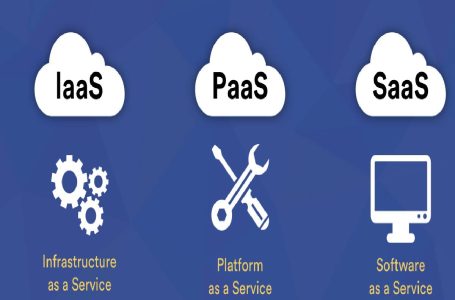As data privacy laws like GDPR, HIPAA, and CCPA continue to tighten, and as threats like business email compromise (BEC) grow more sophisticated, demand for reliable encryption tools has surged. This is particularly relevant for enterprises operating across borders where compliance frameworks vary widely. Providers that combine automation, usability, and compliance into a seamless solution are best positioned to meet the complex needs of today’s digital infrastructure.
This guide reviews the 10 best email encryption providers in 2025. These rankings are based on their technical performance, customer satisfaction, innovation, regulatory fit, and ease of deployment. The aim is to equip enterprise IT leaders and CISOs with an understanding of the top contenders and to highlight what truly sets each apart.
How We Picked the Solutions
The providers on this list were evaluated using a multi-criteria framework. Core factors included encryption strength (AES-256 standard or higher), deployment models (cloud, hybrid, or on-premises), automation capabilities (key management, policy control), integration with popular productivity platforms (Microsoft 365, Google Workspace), and adherence to global compliance frameworks. Customer reviews and analyst insights were also used to assess support quality and real-world performance.
Sources included provider documentation, peer-reviewed research, and real-world case studies. Special attention was given to features that lower operational burden, such as automated certificate issuance, zero-touch deployment, and centralized reporting. Solutions with redundant offerings or legacy complexity were ranked lower unless they demonstrated significant updates or a clear roadmap for innovation.
Understanding the Need for Email Encryption
Most enterprises operate in hybrid cloud environments, making cloud-native encryption a necessity. This also means integration with services like AWS KMS, Google Workspace, and Microsoft Azure is now a key differentiator. Echoworx, for instance, has introduced advanced key management capabilities powered by AWS, giving users full control of their encryption keys and addressing sovereignty and regulatory concerns. Similarly, its new Google Workspace integration enables seamless encryption directly in Gmail, reducing training needs and boosting compliance through policy-based controls.
A crucial need is the automation of certificate-based encryption, like S/MIME. Managing thousands of certificates across an enterprise manually is prone to failure. Providers that support automated certificate lifecycle management through partnerships (e.g., DigiCert and Echoworx) solve this problem elegantly. Security professionals must prioritize solutions that remove end-user friction and allow governance at scale.
Top Email Encryption Providers of 2025
1. Echoworx
Echoworx delivers a versatile, cloud-first email encryption platform that prioritizes automation, compliance, and usability. It supports PGP, S/MIME, TLS, attachment only, and secure web portals, enabling secure message delivery across channels and device types. The platform also includes MYOK (Manage Your Own Keys), which gives organizations full control over their cryptographic keys via AWS KMS. Recent updates include full integration with Google Workspace, Outlook, and automated certificate management through DigiCert, eliminating friction for enterprise users. Echoworx also excels in user experience with click-to-encrypt tools and mobile compatibility.
Further, Echoworx is proactively preparing for the quantum computing era by evaluating its cryptographic infrastructure and advancing toward post-quantum cryptography (PQC). The company aligns with emerging NIST standards, ensuring its systems and algorithms are resilient to quantum and classical attacks.
Key features:
- Full policy-based encryption management
- Support for S/MIME, PGP, TLS, attachments, and secure portal delivery
- MYOK key management on AWS
- High automation via DigiCert integration
- Secure Outlook and Gmail add-in for end-user simplicity
Best for: Enterprises needing flexible delivery methods, cloud-native control, and regulatory compliance in multiple regions.
2. Virtru
Virtru offers client-side and gateway encryption tools with a focus on Google Workspace and Microsoft 365 integrations. Its end-to-end encryption is built on the open TDF (Trusted Data Format) standard, giving users granular control over data. Virtru stands out for its simplicity and fast deployment but lacks the breadth of delivery methods found in Echoworx or Zix.
Key features:
- End-to-end encryption for Gmail and Outlook
- Granular access controls and audit logs
- TDF-based data protection framework
- No need for recipient registration
Best for: Small to midsize businesses prioritizing fast, end-user-friendly email protection within Google or Microsoft ecosystems.
3. Zix (Now part of OpenText)
Zix remains a popular name in the financial and healthcare sectors due to its seamless encryption for Microsoft environments. It provides email DLP, content filtering, and policy-based TLS alongside its secure message portal. However, Zix’s dated interface (they have not had any recent updates for anything) and limited key management customization put it behind newer players.
Key features:.
- Compatibility with Microsoft Outlook
- Strong presence in U.S. healthcare and banking
Best for: Regulated industries looking for a legacy-friendly but reliable solution.
4. Proton Mail (Proton for Business)
Known for its privacy-first stance, Proton offers end-to-end encryption based in Switzerland with strong legal protections. While it delivers high security, the system operates as a closed ecosystem, limiting compatibility. It’s ideal for small teams or NGOs seeking maximum confidentiality rather than enterprise scalability.
Key features:
- End-to-end encryption with zero-access architecture
- Swiss data residency
- Password-protected external messages
- Limited enterprise integration
Best for: Privacy-conscious teams or legal professionals handling highly sensitive data.
5. Mimecast
Mimecast combines email encryption with advanced threat protection, archiving, and business continuity features. As part of a broader email security platform, it includes policy-based encryption and integrates with DLP tools. However, full encryption capabilities often require additional licensing, and S/MIME support is not as mature as others.
Key features:
- Part of a broader email security stack
- DLP integration
- TLS and secure messaging options
- Office 365 integration
Best for: Mid-size to large firms looking for a security suite that includes encryption.
6. Cisco Secure Email Encryption Service
Cisco offers an enterprise-grade gateway encryption solution ideal for large, globally distributed teams. It supports policy-based rules and integrates well with Cisco’s broader security ecosystem. However, it’s more suitable for technically mature environments due to deployment complexity.
Key features:
- Advanced policy control and compliance support
- Integration with Cisco Secure Email Gateway
- S/MIME and TLS support
Best for: Organizations already invested in Cisco’s ecosystem.
7. Paubox
Paubox focuses on healthcare, offering HITRUST CSF-certified email encryption with no need for portals or passwords. The system encrypts every outbound email by default using TLS and is widely used by medical groups and small healthcare providers.
Key features:
- No extra steps for users
- HIPAA compliant by design
- Works with Office 365 and G Suite
Best for: U.S.-based healthcare organizations needing HIPAA compliance with minimal friction.
8. Tutanota
Tutanota, like Proton, provides end-to-end encrypted email with an emphasis on privacy and open-source architecture. It allows for external messaging but lacks deep enterprise integration and automation tools.
Key features:
- End-to-end encrypted mailboxes
- Germany-based servers with GDPR focus
- Password-protected external emails
Best for: NGOs or teams needing privacy over enterprise features.
9. Trustifi
Trustifi specializes in outbound email protection with a focus on visual proof of delivery, email recall, and real-time encryption controls. It offers multiple delivery methods, including encrypted attachments and secure portals, but may lack broader automation features.
Key features:
- Email recall and real-time revoke
- Read receipts and tracking
- Visual proof of delivery
Best for: Sales or legal teams requiring enhanced audit trails.
10. Barracuda Email Protection
Barracuda provides layered email protection, including spam filtering, archiving, and encryption. While not a standalone encryption platform, its policy-based encryption and integration with Office 365 make it a decent option for SMBs.
Key features:
- Integrated with spam and phishing protection
- TLS and portal encryption
- Microsoft 365 friendly
Best for: SMBs seeking an affordable, bundled solution.
Comparison Table
| Provider | Key Features | G2 Rating | Review Count | Ideal For |
| Echoworx | Policy-based automation, strong key management, broad interoperability, MYOK | 4.8 | 150+ | Enterprises needing highly flexible, secure, and automated encryption |
| Virtru | End-to-end encryption, persistent protection, integration with Google/Microsoft | 4.7 | 200+ | Organizations prioritizing ease of use and seamless integration with existing platforms |
| Zix | Data loss prevention, email archiving, strong focus on compliance | 4.5 | 100+ | Businesses in regulated industries with specific compliance requirements |
| Proofpoint | Threat protection, data loss prevention, email security gateway integration | 4.6 | 180+ | Large enterprises seeking comprehensive email security solutions |
| Mimecast | Email security, archiving, continuity, integrated threat intelligence | 4.5 | 220+ | Organizations looking for an all-in-one email security and management platform |
| Trend Micro | Endpoint security, email security, hybrid deployment options | 4.4 | 90+ | Businesses seeking integrated security across various layers |
| Sophos | Email security, endpoint protection, simplified management | 4.3 | 110+ | Organizations valuing ease of management and integrated security products |
| Cisco | Secure email, threat intelligence, data loss prevention | 4.2 | 80+ | Enterprises requiring robust security infrastructure and threat intelligence |
| Paubox | HIPAA-compliant email encryption, seamless user experience | 4.7 | 70+ | Healthcare organizations needing easy-to-use, compliant encryption |
| ProtonMail | End-to-end encryption, focus on privacy, user-friendly interface | 4.6 | 130+ | Organizations and individuals prioritize strong privacy and ease of use |
Making your Choice
Email encryption offers a variety of solutions tailored to different needs. For enterprises demanding extensive flexibility, robust security, and automation, Echoworx stands out with its policy-driven approach and strong key management. Organizations prioritizing user-friendliness and seamless integration with platforms like Gmail and Outlook may find Virtru particularly appealing due to its end-to-end encryption and persistent protection features.
Businesses operating within regulated industries with stringent compliance mandates could benefit from Zix’s focus on data loss prevention and archiving. Larger enterprises seeking a holistic email security framework that integrates threat protection might consider Proofpoint or Mimecast, which provide comprehensive suites of security services.
Companies looking for integrated security across endpoints and email might explore Trend Micro or Sophos, while those requiring robust security infrastructure and advanced threat intelligence could consider Cisco. For healthcare organizations needing HIPAA-compliant and user-friendly encryption, Paubox presents a strong option. Finally, for organizations and individuals who prioritize privacy and ease of use, ProtonMail’s end-to-end encryption and intuitive interface make it a compelling choice.
Ultimately, the optimal email encryption solution depends on a careful evaluation of an organization’s specific requirements, including its size, industry, compliance obligations, and technical infrastructure.
FAQs
What is the difference between TLS and end-to-end encryption?
TLS encrypts the message in transit, while end-to-end encryption ensures only the sender and recipient can read the content. TLS can be intercepted at endpoints; E2EE cannot.
Why is key management so important?
Without proper key management, encrypted data can be inaccessible or vulnerable. Automated systems like those from Echoworx simplify key rotation and lifecycle management.
Can email encryption slow down workflows? It can if poorly implemented. Solutions like Echoworx avoid this by offering policy-based controls and seamless integrations that maintain user productivity.





